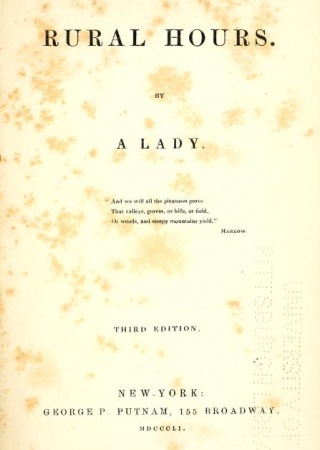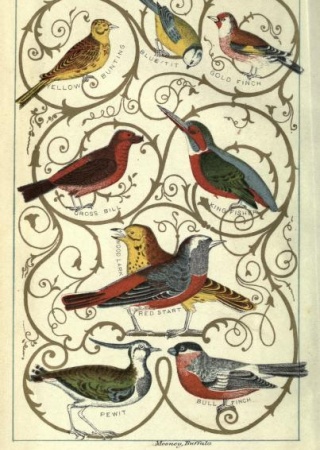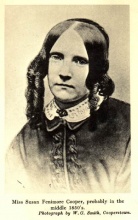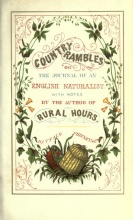Susan Fenimore Cooper
- Sadly, Susan’s ecological preservation warnings were not heeded and her ideas about forest preservation are as dire now as they when she wrote them?
- Some of the bird species about which she wrote and hoped to preserve have become extinct since her lifetime?
- Her father, famous novelist, James Fenimore Cooper, called her “Sue”; they were very close and she dedicated her book, Rural Hours, to him?
- Susan worked as her father’s secretary and did some writing for him?
- Susan founded an orphanage in Cooperstown, NY, which ended up housing almost 100 children?
- Susan also founded The Friendly Society, in which female members would mentor girls at her orphanage?
- She said she was inspired to love nature by her maternal Grandfather DeLancey, with whom her family lived when she was four; he would drive her through the country and teach her about different trees, which became the beginning of Rural Hours?
- 1813 Susan is born to James Fenimore Cooper and Susan Augusta DeLancey.
- 1833 Susan returns to her home in Cooperstown, NY after being educated with her four siblings in New York and Paris.
- During Susan’s younger years she acts as secretary for her father and helps him write his works.
- 1850 Susan publishes her natural history work, Rural Hours.
- 1853 John Leonard Knapp's work,Country Rambles in England is published with notes by Susan.
- 1873 She founds an orphanage in Cooperstown, NY.
- 1894 Susan passes away.
Susan Fenimore Cooper (1813-1894) was one of the first Americans to warn about the dangers of overusing natural resources. She was born in New York in 1813 and received a very good education; she learned four languages, studied American and English literature, history, zoology and botany. She refused to assert scientific statements that had not yet been proven, only positing certain natural history ideas. She observed nature by inspecting plants and birds, making her own conclusions only after personal verification.
Her book, Rural Hours, is her only naturalist text, but she is an important figure because she urged nature conservation at a time when this was not explored deeply or put into effect. She recorded her findings about the natural world in Rural Hours (1850) in a whimsical, diary-like manner, describing the nature around her in Cooperstown, NY. She discussed local plants, animals and culture. Her other works included a few biographical pieces, a novel, some articles, some works which she edited, and her very successful work Pages and Pictures from the Writings of James Fenimore Cooper (her father, the popular novelist).




